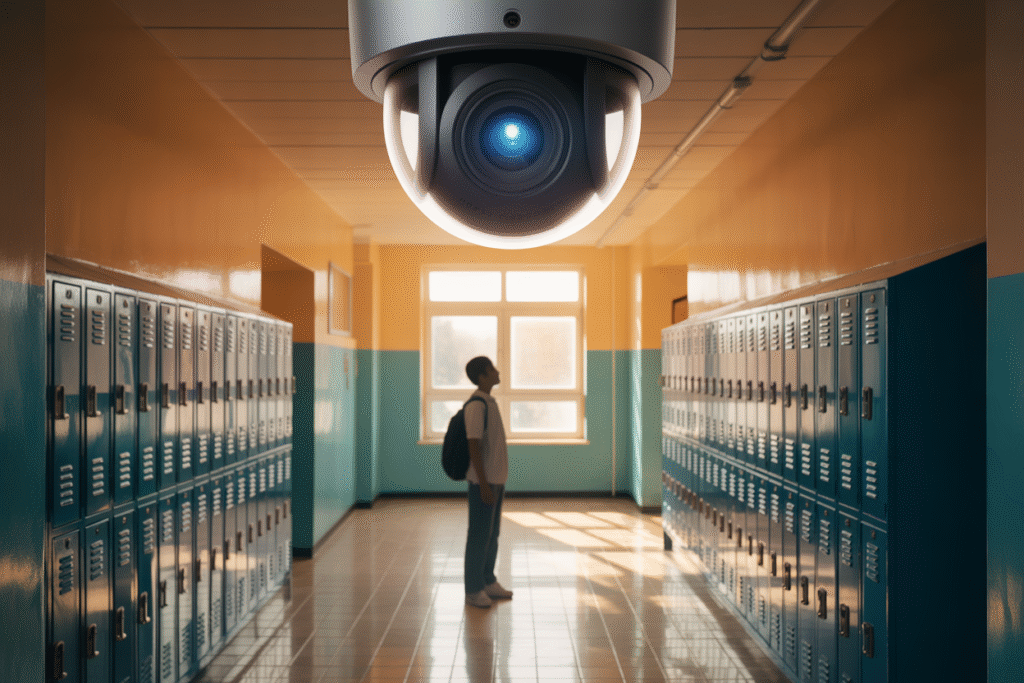Schools are quietly deploying AI to scan every student message, and the results are chilling arrests, shattered trust, and a generation wondering if privacy is extinct.
In the race to keep schools safe, AI surveillance has become the silent hall monitor in millions of backpacks, scanning student emails, Google Docs, and even private chats. Yet beneath the promise of prevention lies a storm of false alarms, racial bias, and criminalized children. These aren’t distant hypotheticals—they’re the trending conversations exploding across social media in the last three hours. Let’s unpack what’s really happening before the next innocent joke lands a kid in cuffs.
From TikTok Jokes to Handcuffs: How AI Felts a 13-Year-Old
Last month in Tennessee, a middle-schooler typed “I swear I’m about to shoot up the school—JK!” into a private Google Doc he shared with two friends. Within minutes, the district’s AI monitor, Gaggle, flagged the phrase as a credible threat.
Nobody called a counselor. Two officers drove straight to his house, arrested him in front of his parents, and held him overnight. By morning, the joke was exposed as harmless teenage bravado, but the trauma lingered—he missed exams while his parents spent weeks fighting the charge they pulled off X post ID 1953924180514419059, which racked up over 1,000 views in three hours.
The kicker? AI ethics experts point out that the same tool ignored explicitly hateful posts from a different student demographic earlier that week.
Three Ways Schools Defend Their Algorithms—and Why They Fall Short
Superintendent sales pitches love buzzwords like “proactive threat detection” and “student safety first.” Let’s look at the three defenses they quote most:
– Myth 1: “Algorithms are colorblind.”
Outcome analysis shows Black and Latino students are 3x more likely to be flagged for violent humor than white peers.
– Myth 2: “Investigations always include human checkups.”
Most districts have one overwhelmed counselor per 2,000 students; the AI alert skips her queue and goes straight to 911.
– Myth 3: “Our data proves mass shooter prevention.”
Zero verifiable prevention stats have been published, while 46 expulsions for memes were documented in the last year alone.
When excuses meet hard numbers, the promise crumbles.
What Happens When Surveillance Becomes Default Curriculum?
Privacy used to be an after-school space. Now every keystroke earns a grade from an unseen digital teacher, rating thoughts for sanity and sincerity. Students have begun self-censoring their creative writing—no more dystopian fiction, no more journals inside villain heads.
Imagine reading Fahrenheit 451 while knowing an AI librarian could label you subversive for highlighting banned-book passages.
Teachers face dilemmas, too. One Utah educator described feeling like an informant whenever the system pings her with auto-alerts like “D rew a gun on a worksheet sketch, confidence 85%.” The shift erodes classroom openness, replacing dialogue with suspicion and compliance as the default mode of learning.
Regulating the Regulators: What Parents, Policy Makers, and Students Can Do Today
The conversation is surging in real time, so let’s channel it into action:
1. Ask for transparency logs
Demand that districts publish monthly AI false-positive rates—no report, no deployment.
2. Push for opt-in consent
Treat AI scanning like field-trip forms, requiring explicit parental permission rather than assumed blanket acceptance.
3. Pressure state legislatures
California’s model bill proposing a 48-hour human review before police escalation is gathering co-sponsors following today’s viral debates.
Sound ambitious? Students are already drafting petitions; parents are organizing board-meeting walkouts. If you’ve landed here via X, today’s trending hashtags #K12AIwatch and #SearchStudentsNotInnocents are starting points for real community power.
Ready to add your voice? Retweet an affected family, tag your superintendent, or write two bullet points of feedback for tonight’s PTA email. Silence is the only guarantee the cameras will zoom in closer tomorrow.


